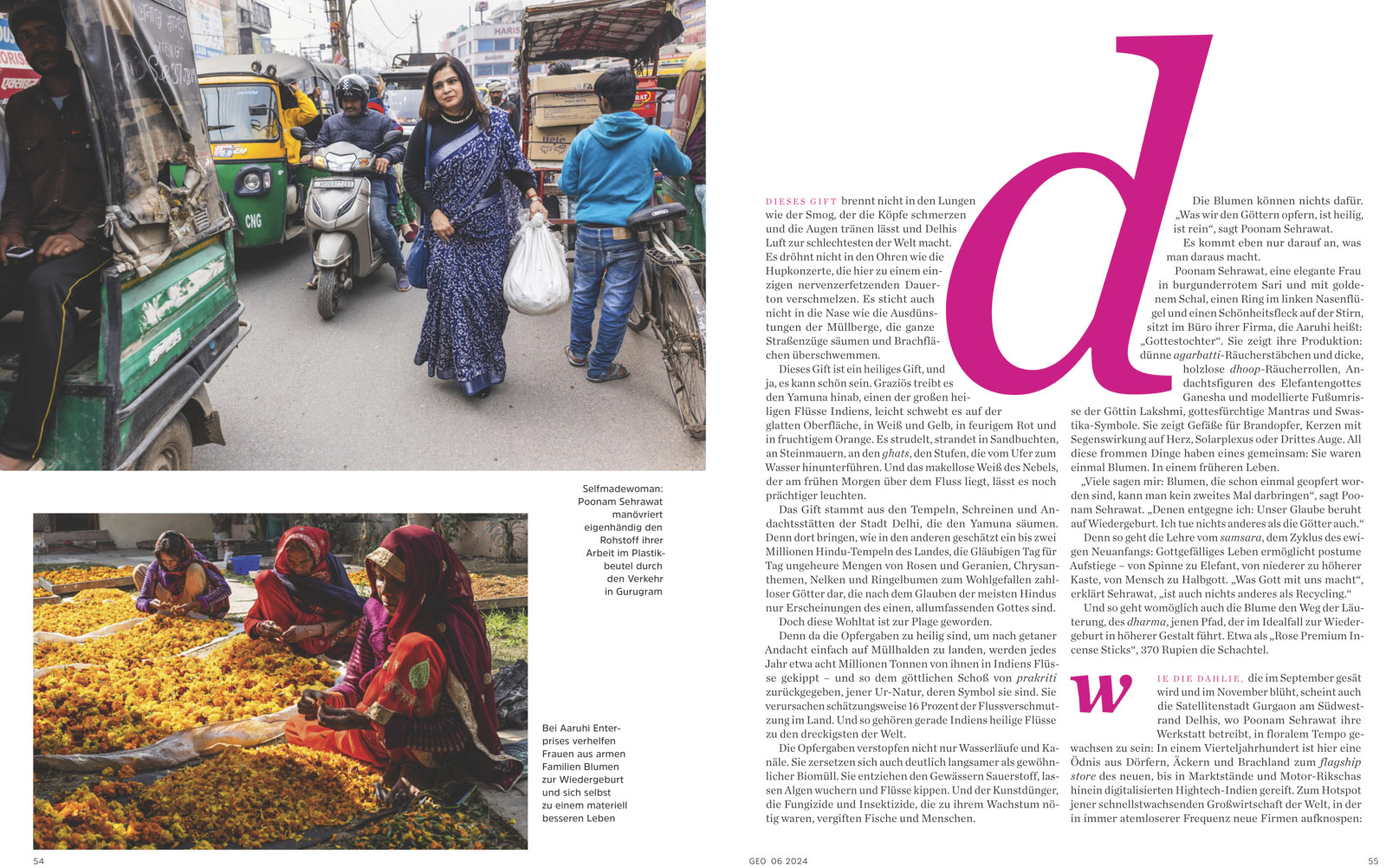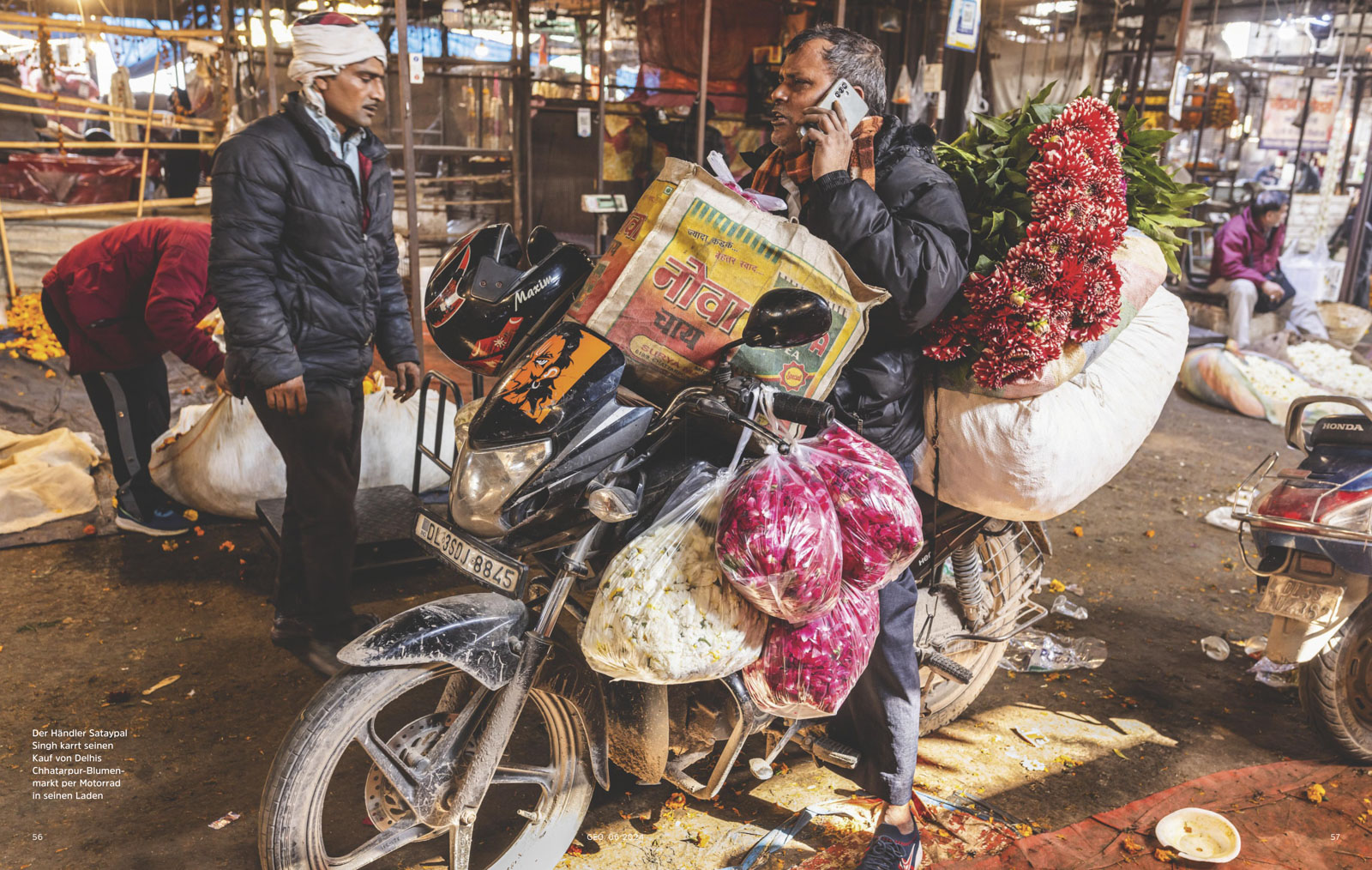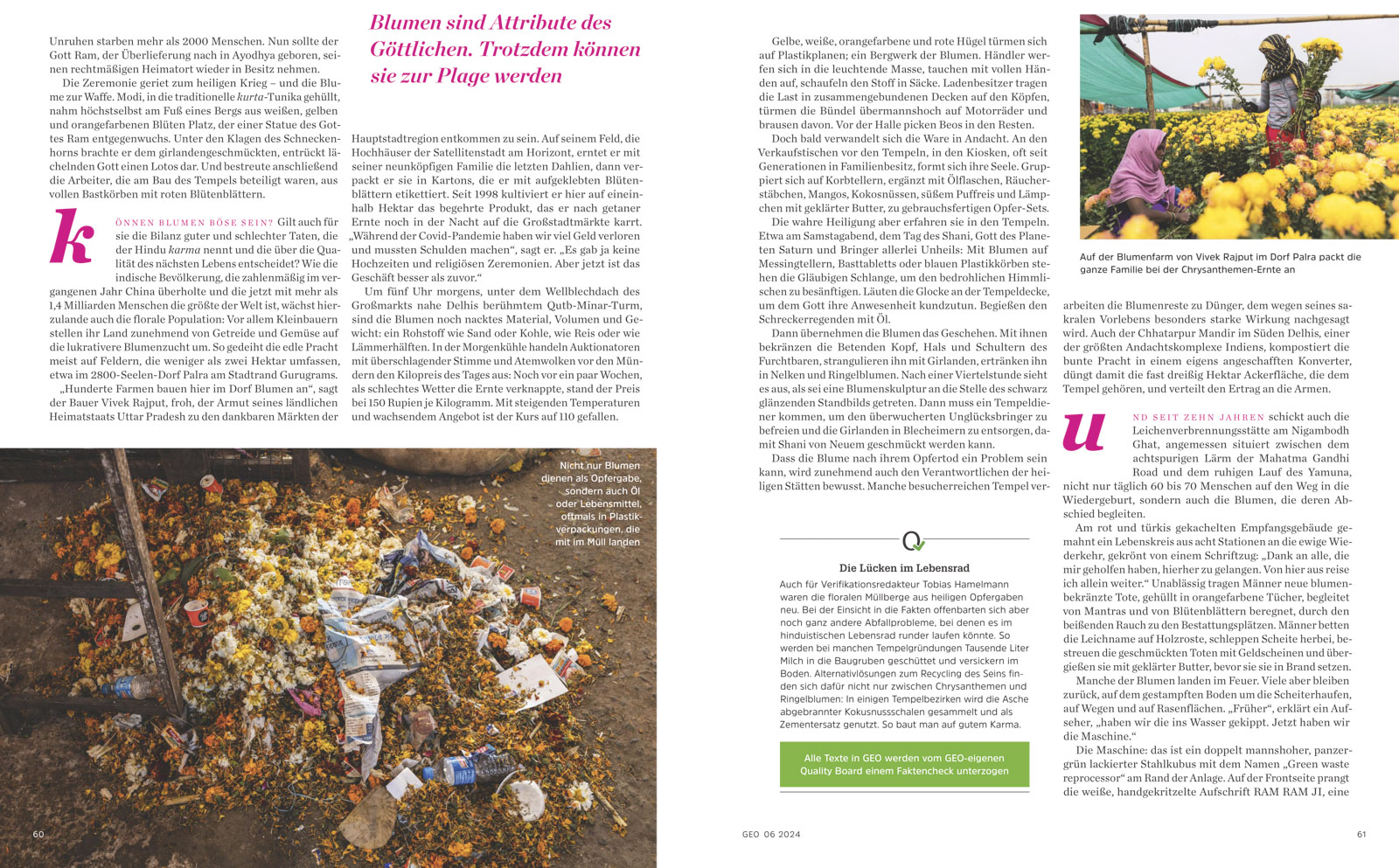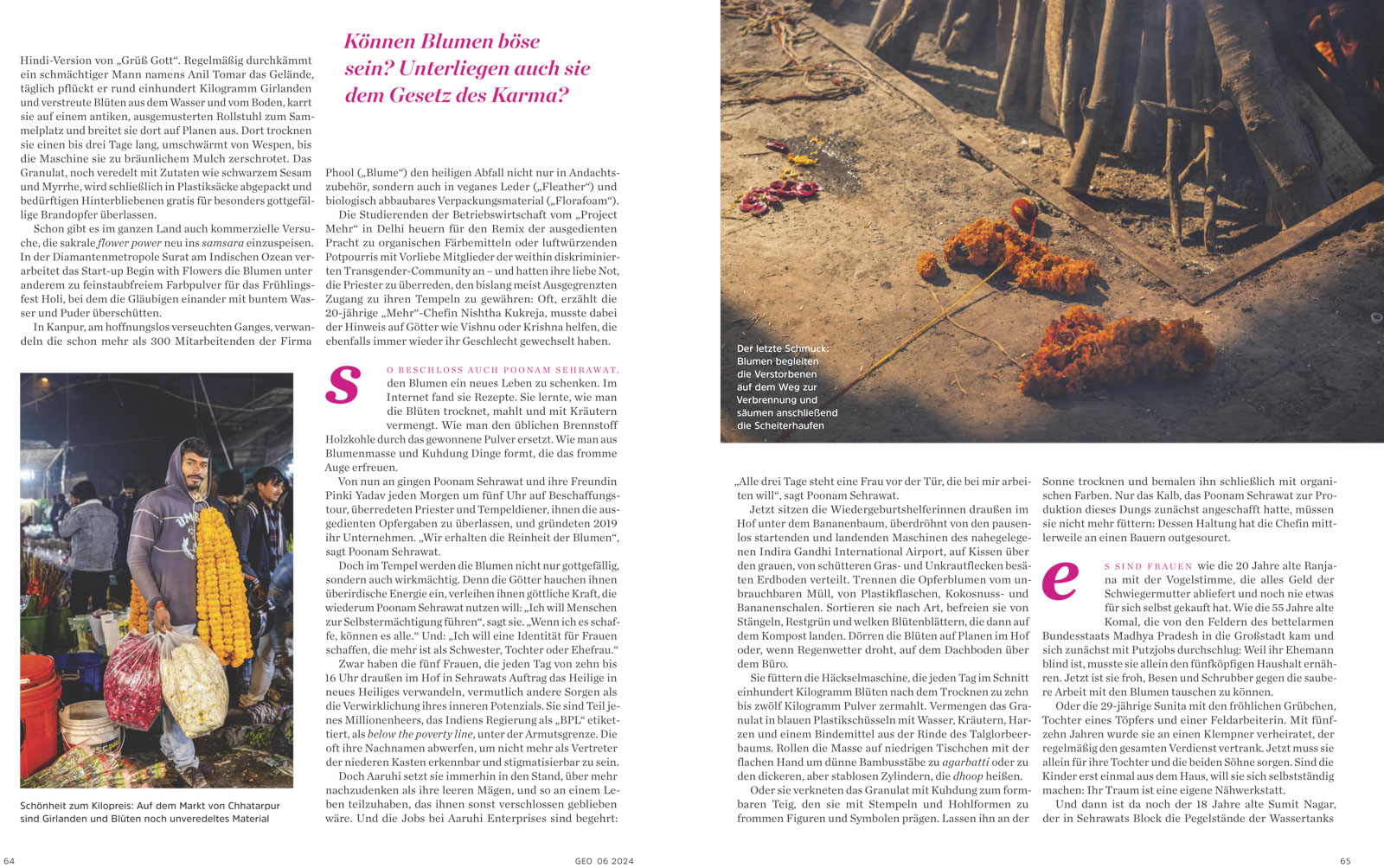A 2016 study found that approximately eight million tonnes of discarded flowers are dumped into India’s rivers and other water bodies annually. This waste not only clogs and pollutes the rivers and harms aquatic life, but also contaminates the water with pesticides and chemical fertilisers used in flower cultivation. A few entrepreneurs are now tackling the problem by recycling flowers from places of worship to make incense and other products, while creating sustainable livelihoods for underprivileged women. For GEO Germany, I followed the lifecycle of flowers and one such entrepreneur, Poonam Sehrawat of Aaruhi Herbals in Gurgaon.
Sehrawat begins her day collecting wilted marigolds, roses, and other offerings from nearby temples, where the flowers are piled high in bins after ceremonies. Working with a small team, she sorts them by hand, drying the petals in the sun before grinding them into powders used for natural dyes, incense sticks, and herbal soaps. The process is simple but labour-intensive, relying on traditional techniques and minimal machinery. By reusing what was once considered waste, her initiative not only reduces environmental damage but also brings meaningful employment to women in the area, many of whom had limited options for income.














